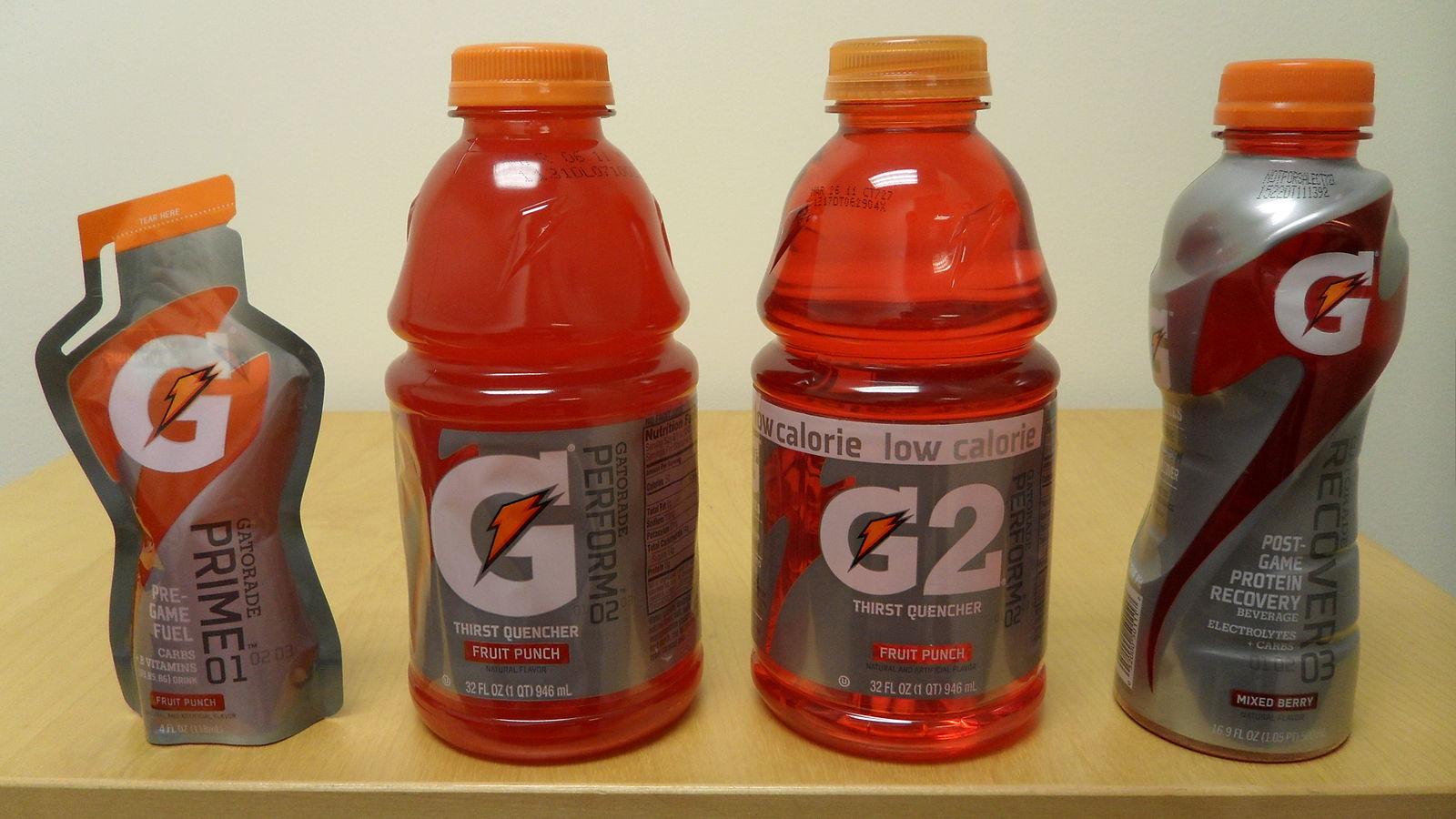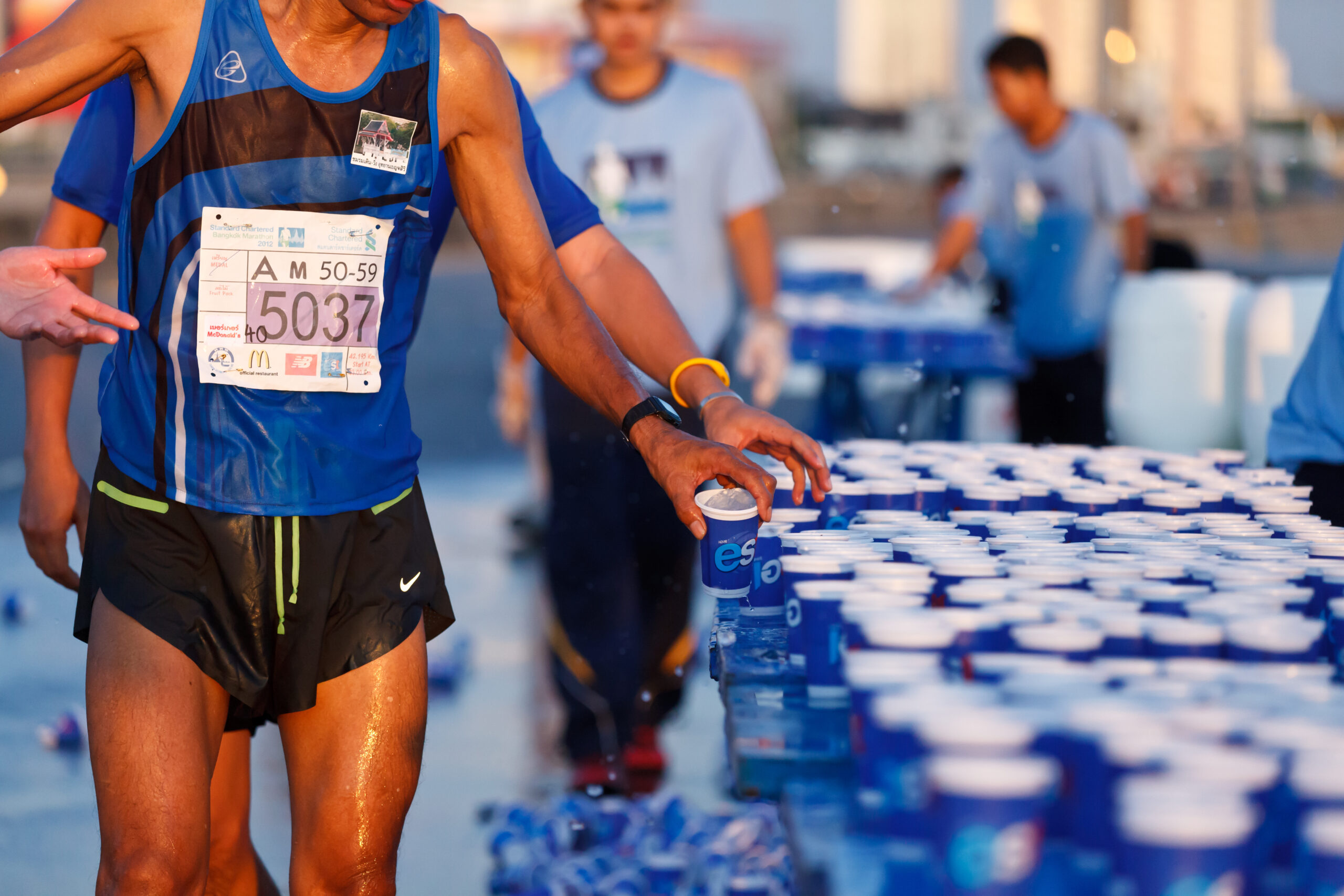We have all heard the importance of hydration. We have all been told how important it is to stay hydrated in order to perform optimally. Advice surrounding hydration always seems extremely generic. Why is hydration so important and how should we actually hydrate? Very seldom is this discussed with athletes.
Hydration is important as water is involved in almost every bodily function. When the body functions optimally it can perform optimally. If it is not functioning well then any stress applied to it is magnified. That is the short explanation as to why we should hydrate. Most will understand basic biology and the concept of osmosis. Solutes and water diffuse across a membrane from areas of high concentration to areas of low concentration. In regard to the body we have many forms of these membranes, the simplest being the membrane which surrounds all cells. Water is needed for many cell activities including cell metabolism, without which a cell would cease to function. The science behind cell metabolism is fascinating in itself but not all that practical for the majority of athletes.
For endurance athletes cardiac output is a critical factor. This is a product of heart rate and stroke volume (Blood volume ejected from the heart with each beat). Blood is mostly made up of water. In cases of dehydration blood plasma volume is reduced as water is excreted through sweating etc. Water and its role during sweating is the most effective element in heat management. If our plasma volume reduces there is reduction in overall blood volume as red cells become more concentrated in less plasma. This results in the heart having to work harder to pump enough blood around the body. This increase in workload is pointless additional stress for the body. It is purely a mechanistic result of water loss from the blood. It will cause a reduction in cardiovascular capacity and overall work capacity. Similar effects occur at altitude in an effort to combat reduction in oxygen pressure in the ambient air. The body increases hormones which excrete water to concentrate the blood, as less oxygen is being absorbed into the blood with the reduction in pressure.
The stomach is a key organ in the process of hydrating. Water is one of the few substances that can be absorbed by the lining of the stomach. In saying that water is also essential downstream in the small intestine for the absorption of other compounds ie. salts, sugars and amino acids. If we take in a lot of these compounds water must accompany them as a buffer in order for them to be absorbed. This is important when we look at things like sports drinks. These drinks often have high concentration of sugars and in some cases salt. This can be problematic for the rate of absorption of water. Athletes often complain of a feeling of fluid in the stomach after drinking large quantities of these drinks. That is exactly the case. Water must follow these compounds into the small intestine.
What this means is that water on its own is often absorbed faster than a sports drink. For short term exercise plain water is a better choice for rapid hydration. During longer bouts of exercise and in hot conditions many minerals and salts are lost from the body. The loss of minerals, salts and the consumption of glucose will have a significant impact on muscular and cognitive performance. In addition there is a change in osmotic gradients. This change may hinder the absorption of water. Drinking large amounts of plain water over long durations may cause potential hyponatremia (low sodium levels).
In many cases the advice given for monitoring hydration status involves examining the colour of our urine. Dark urine signifies dehydration. Lighter colored urine signifies good hydration. The concern here is that if one drinks lots of water without replacing salts and minerals, water will have problems being absorbed if salt levels are low. It can lead one into a false sense of being properly hydrated.
An athlete must consider the circumstances. Short bouts of exercise, an hour long for example will not deplete salts and therefore plain water is a good choice. For bouts much longer and/or in heat, a marathon or long day hiking for example, a hydration formula is essential. By replacing salts and other compounds we can maintain a better level of hydration as well as providing essential compounds to cell function. In addition many compounds such as salt absorb better with sugars. A hydration formula should not just contain salt for this reason. Amino acids also help with salt absorption. If one uses a formula containing these other compounds they have the added benefit of replacing glucose for energy metabolism as well as reducing cell damage and aiding in recovery.
There are many commercially available sports drinks and formulas. Some are better than others. In many cases some popular brands are driven as much by taste as they are function. Many are too highly concentrated with sugar. In these cases they would be better if watered down. The level of solute concentration should reflect the conditions but in most cases weaker concentrations are less problematic. Less obvious, effective choices for hydration are targeted for a more clinical setting. Dioralyte and Pedialyte are specifically formulated for hydration without all the extras that you may find in some commercial sports drinks. One can also make a pretty decent homemade formula using natural ingredients. Water, salt and honey can form an excellent and simple hydration formula. Adding a little glutamine to the mix will also tick the box for amino acid presence.

A favorite of ours is the following. It has been tried and tested with excellent results.
1 litre of water
6 teaspoons of honey or maple syrup
½ teaspoon of table salt
In terms of timing it is important to constantly manage hydration. This means consuming fluids before, during and after exercise in accordance to the environment and type of exercise. Something to note is the effect of dehydration on digestion. Often athletes prioritize eating over rehydrating. In the case of multi day events this is not the best strategy. Poor hydration can lead to poor digestion and slow the process of refueling quite dramatically. Gastrointestinal stress can lead to poor sleep and other issues which have disastrous effect on performance. In the case of cutting weight for sport, water cutting is a popular method. An individual will purposely dehydration themselves in order to reduce overall bodyweight. After weighing in, if one does not rehydrate first it can be very difficult to consume food and digest properly before competition. Often a hydration formula and efficient hydration strategy will have greater benefits than eating after a weigh in. With that in mind hydration should always be priority number one. With added glucose it may also be a fast way to restore glycogen so it is beneficial in multiple ways.
Athletes need to be practical and efficient with every aspect of their performance that they can control. Hydration is extremely important but rarely discussed in practical terms. When one considers the circumstances and has some understanding of the process one can manage the situation much more effectively. That very much applies to hydration. A little bit of thought and practice with hydration strategies can make performance more consistent and training more effective.
If you liked this article please like and share. You can sign up to our free newsletter below!
[yikes-mailchimp form=”1″]
